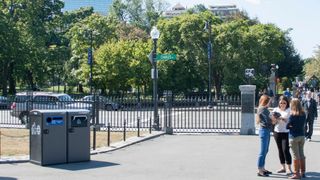Do we really need smart cities?
We consider the importance and economics of smart cities
Big Brother and other drawbacks
Philipp Schuster, MD of Loxone UK, says that while the residents of smart cities should expect an increase in quality of life, with better, quicker access to healthcare, reduced time of commuting and less pollution, this can only work if there is a level of collaboration with citizens.
"If citizens are forced into a certain way of adopting it could lead to 'Orwellian Panopticonism' attitudes, in which people can feel controlled and constantly watched," he warns.

Another potential problem area is the ineffective rollout of smart city services. Phani Pandrangi, CPO at IoT platform Kii, cites the example of a smart waste management implementation where waste pickups were optimised so that the number of pickups was reduced, with larger and smarter (they know when they're full) waste bins. "But it turned out it wasn't implemented correctly. The workers always picked up the bins as before because the full bins were too heavy – and they preferred to pick up lighter bins," he says.
The future
Garner says that in the next 12 to 18 months, consumers will be seeing a lot more innovation, early deployments and piecemeal services. "In five years, many cities will be providing a lot more joined-up services where government, small business and big business can all provide better quality lifestyle enhancing services for citizens."

Howell says that within a year or two, cities could be reaping the rewards of smart projects with better managed roads, more intelligent use of public transport and best usage of connected vehicles.
"But, there is a nagging doubt in my mind that although the technology is proven and available, we will still see people talking and prevaricating in five years' time," Howell adds. "And the worrying thing is, the problems won't go. It will become more expensive and more difficult to fix as each year passes."
Are you a pro? Subscribe to our newsletter
Sign up to the TechRadar Pro newsletter to get all the top news, opinion, features and guidance your business needs to succeed!
